Jad Melki
Professor of Journalism and Media Studies
Director, Institute of Media Research and Training
Jad Melki is a professor of journalism and media studies and director of the Institute of Media Research and Training at LAU. He is also a visiting faculty at the Salzburg Academy on Media and Global Change, an affiliated researcher with the International Center for Media and the Public Agenda (ICMPA) at the University of Maryland (UMD), a Visiting Professor at Bournemouth University and an affiliated faculty at the Jordan Media Institute. Previously, Dr. Melki served as chairperson of the Department of Communication Arts at LAU, as research director of ICMPA at UMD and as founding director of the Media Studies Program at the American University of Beirut (AUB), where he received a service excellence award.
In 2020, he won the Abdul Hameed Shoman Award for Arab Researchers for his scholarship on the impact of social media in the Arab World, and in 2015 the UNESCO-UNAoC International Media and Information Literacy Award for advancing media literacy education in the Arab region through founding and directing the Media and Digital Literacy Academy of Beirut (MDLAB). Dr. Melki has taught at Johns Hopkins University, UMD, Towson University, Jordan Media Institute, AUB and LAU, where he received a teaching excellence award in 2018/19 and a research excellence award in 2021/22. Prior to academia, Dr. Melki was a broadcast and digital journalist and communication expert working with US and Arab media. He won a Webby Award and a National Press Club Award for covering the 2006 Israeli war on Lebanon. Dr. Melki received his PhD from the Philip Merrill College of Journalism at the University of Maryland in 2008.
Research Interests
Dr. Melki’s research is at the intersection of media literacy, journalism and oppression and draws on feminist theory, health communication, war journalism, and crisis communication, and focuses on Arab media and society.
SDGs Research Mapping
Dr. Jad Melki conducts research relevant to the following SDGs:
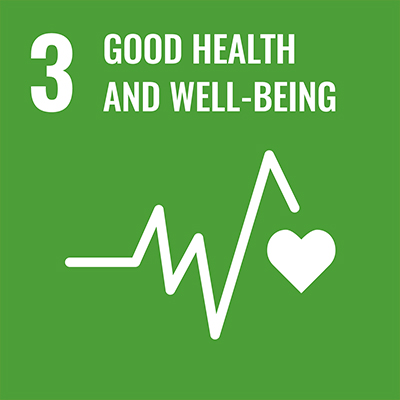
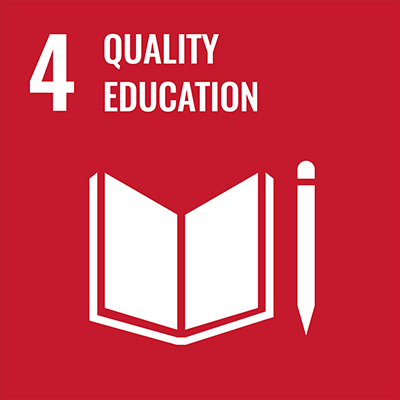
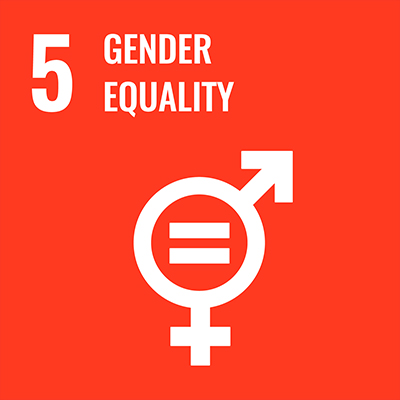
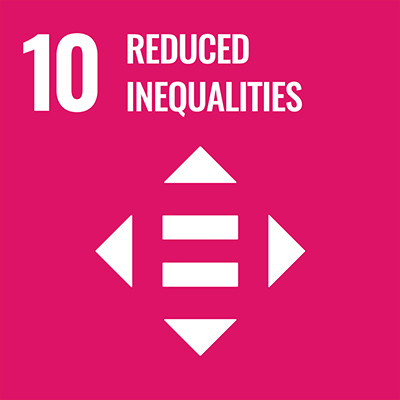
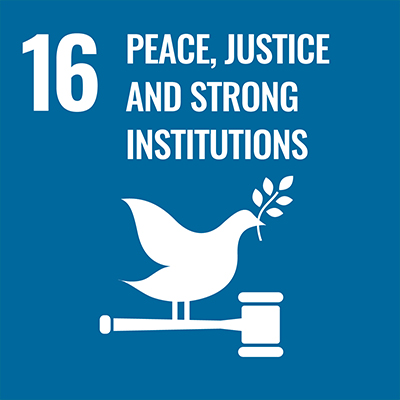
Awards
- Research Excellence Award, Lebanese American University, 2021-2022.
- Research Excellence Award, the Abdul Hameed Shoman Award for Arab Researchers, 2020.
- Teaching Excellence Award, Lebanese American University, 2018-2019.
- Teaching Contest Award for Research on Media and Genocide, International Communication Division, Association for Education in Journalism and Mass Communication (AEJMC), 2019.
- UNESCO-UNAoC International Media and Information Literacy Award, 2015.
- Service Excellence Award, American University of Beirut, 2014.
- Webby Award for coverage of the 2006 Lebanon war with Yahoo News Hot Zone team, 2006.
- US National Press Club Award, 2006 war coverage with Yahoo News Hot Zone team, 2006.
- Jack Shaheen Mass Communication Award for Arab-American Journalists, 2005.
Selected Publications
- Melki, J. (2025). Media Literacy of the Oppressed: An Emancipatory Pedagogy for/with the Marginalized. Routledge.
- De Abreu, B., Mihailidis, P., Melki, J., Lee, A., and McDougall, J. (Eds). (2017). The International Handbook of Media Literacy.
- Mellado, C., Hallin, D., … Melki, J. et al. (2024). The societal context of professional practice: Examining the impact of politics and economics on journalistic role performance across 37 countries. Journalism. https://doi.org/10.1177/14648849241229951
- Hallin, D. Mellado, C., … Melki, J. et al. (2023). Journalistic role performance in times of COVID. Journalism Studies. https://doi.org/10.1080/1461670X.2023.2274584
- Melki, J.* (2023). The effect of trust in media and information sources on coronavirus diseases 2019 prevention behaviors in Lebanon. Media International Australia. https://doi.org/10.1177/1329878X231214351
- El Mikati, I., Hoteit, R., Harb, T., El Zein, O., Piggott, T., Melki, J., Mustafa, R., Akl, E. (2023). Defining Misinformation and Related Terms in Health-Related Literature: Scoping Review. https://doi.org/10.2196/45731
- Farhat, S. & Melki, J.* (2023). Framing Revolution: Multiframe News Themes in Lebanon’s October 2019 Uprising. International Journal of Press/Politics. https://journals.sagepub.com/doi/10.1177/19401612231187831
- Melki, J.*, Hamzeh, D. Itani, J., Hariri, M., Daou, P., Al-Shami, A., El Bour, H., Khalifa Salim, S., Masharqa, S., Othman, S., & Durra, Y. (2023). The role of media literacy in mitigating COVID-19 vaccine hesitancy and conspiracy theories. https://ijoc.org/index.php/ijoc/article/view/20418
- Farhat, S. & Melki, J.* (2023). Lebanon’s 2019 uprising: A feminist uprising or feminized media sensationalism? https://doi.org/10.1080/10646175.2023.2199691
- Melki, J.*, Gretchen King, Yasmeen Sakka, Rayan Haidar, Farah Saati, Nadine Mazloum. (2023). Gendered representations in Lebanese advertisements: flawless white femininity, heteronormative patriarchal masculinity, and the erasure of local diversity. https://doi.org/10.1080/14680777.2023.2194571
- Melki, J.* (2023). Gender equity in Lebanon’s news industry: The chasm between management’s perspectives and women journalists’ experience. https://doi.org/10.1386/ajms_00102_1
- Melki, J.* (2023). Knowledge Gap Hypothesis and Pandemics: COVID-19 Knowledge, Communication Inequality, Conflict, and Media Literacy in Lebanon. https://doi.org/10.17645/mac.v11i1.5960
- Kozman, C., So, C., Khalifa, S., Movahedian, M., El Amin, J., Melki, J.* (2022). Social media behavior during uprisings: selective sharing and avoidance in the China (Hong Kong), Iran, Iraq, and Lebanon protests. https://doi.org/10.1515/omgc-2022-0053
- Melki, J.*, Kozman, C., Mellado, C., Elortegui, C., So, C., Movahedian, M., Khalifa, S., & Farhat, S. (2022). Selective exposure during uprisings: A comparative study of news uses in Chile, Hong Kong, Iran, Iraq, and Lebanon. https://doi.org/10.1177/17480485221144582
- Gerodimos, R., Balbin, C., Chan, C., Freundt-Thurne, U., Jose Gutierrz Atala, F., Nyaole-Kowuor, R. & Melki, J.* (2022). Global citizenship in comparative perspective: Youth perceptions of global rights, responsibilities and efficacy across five continents. Special issue on media literacy and civic cultures. https://obs.obercom.pt/index.php/obs/article/view/2177/188188204
- Kozman, C., & Melki, J.* (2022). Selection Bias on Social Media: The role of selective sharing and avoidance in political participation during uprisings. https://ijoc.org/index.php/ijoc/article/view/18811
- Melki, J.*, Tamim, H., Hadid, D., Farhat, S., Makki, M. Ghandour, L. & Hitti, E. (2022). Media exposure and health behavior during pandemics: The mediating effect of perceived knowledge and fear on compliance with COVID-19 prevention measures. https://doi.org/10.1080/10410236.2020.1858564
- Kozman, C., Tabbara, R., Melki, J.* (2021). The role of media and communication in reducing uncertainty during the Syria war. https://doi.org/10.17645/mac.v9i4.4352
- Melki, J.*, Tamim, H., Hadid, D., Makki, M., El-Amin, J., & Hitti, E. (2021). Mitigating Infodemics: The relationship between news exposure and trust and belief in COVID-19 fake news and social media spreading. https://doi.org/10.1371/journal.pone.0252830
- Hitti, A., Melki, J., Sahakian, T., and Killen, M. (2021). Lebanese adolescents’ expectations about social inclusion of peers in intergroup contexts. https://doi.org/10.1111/bjdp.12372
- Hitti, E., Hadid, D., Melki, J., Kaddoura, R., & Alameddine, M. (2021). Mobile device use among emergency department healthcare professionals: prevalence, utilization and attitudes. https://doi.org/10.1038/s41598-021-81278-5
- Melki, J.* & Hitti, E. (2021). The domestic tethering of Lebanese and Arab women journalists and news managers. https://doi.org/10.1080/17512786.2020.1715822
- Melki, J.* & Kozman, C. (2020). Selective exposure during uprisings: examining the public’s news consumption and sharing tendencies during the 2019 Lebanon protests. https://doi.org/10.1177/1940161220972892
- جاد ملكي*، إفلين حتي، ميرنا أبوزيد، علي الطقش. (2020) مواجهة الوباء المعلوماتي: ورقة عمل حول استخدامات وسائل الإعلام والاتصال في لبنان خلال جائحة فيروس كورونا المستجدّ.
- جاد مكلي*. (2020). استخدامُ اللبنانيين للإعلام وثقتُهم به في زمن الثورة.
- Melki, J.*, & Kozman, C. (2019). Media dependency, selective exposure and trust during war: media sources and information needs of displaced and non-displaced Syrians. https://doi.org/10.1177/1750635219861907
- Nasreddine, L., Taktouk, M., Dabbous M., and Melki, J. (2019). The extent, nature and nutritional quality of foods advertised to children in Lebanon: the first study to use the WHO nutrient profile model for the Eastern Mediterranean. http://dx.doi.org/10.29219/fnr.v63.1604
- جاد ملكي*. (2019). سياسة داعش الإعلامية.
- Melki, J.* (2018). Editorial: Towards a media literacy of the oppressed. http://merj.info/wp-content/uploads/2018/02/MERJ_8.1_Editorial.pdf
- Kozman, C., & Melki, J.* (2018). News media uses during war: The case of the Syrian conflict. https://doi.org/10.1080/1461670X.2017.1279564
- Palmer, L. & Melki, J.* (2018). Shape shifting in the conflict zone: The strategic performance of gender in war and conflict reporting. https://doi.org/10.1080/1461670X.2016.1161494
- Melki, J.*, & Maaliki, L. (2017). Maneuvering entrenched structures of Arab education systems: The agency of Arab media literacy educators and activists. https://aml.ca/wp-content/uploads/2019/09/jml-agency.pdf
- Bou-Karroum, L.; El-Jardali, F.; Hemadi, N.; …; Darzi, A.; Ali, M.; Doumit, C.; Langlois, E.; Melki, J.; AbouHaidar, G.; and Akl, E. (2017). Using Media to Impact Health Policy-Making: An integrative systematic review. https://doi.org/10.1186/s13012-017-0581-0
- Fitzpatrick, C., Oghia, M., Melki, J., & Pagani, L. (2016). Early childhood exposure to media violence: What parents and policy makers ought to know. https://files.eric.ed.gov/fulltext/EJ1186998.pdf
- Melki, J.*, & Jabado, M. (2016). Mediated public diplomacy of the Islamic State in Iraq and Syria: The synergistic use of terrorism, social media and branding. https://doi.org/10.17645/mac.v4i2.432
- Melki, J.*, and Mallat, S. (2016). Block her entry, keep her down, and push her out: gender discrimination, sexual harassment, and the disenabling legal and social environments that face women journalists in the Arab world. https://doi.org/10.1080/1461670X.2014.962919
- جاد ملكي* وسارة ملاط. (2016). فعالية ام عبء النشاط الرقمي؟ حسنات ومساوئ الإعلام الرقمي والاجتماعي في النشاط المدني.
- Melki, J. (2022). Foreword. In Belinha De Abreu (Ed.), Media Literacy, Equity, and Justice.
- جاد ملكي*. (2020). دعوة الاعلام إلى ثورة بيضاء لتبسيط اللغة العربية وتحديث مناهجها، أو تخصيص متاحف ومدافن حجَرية لها. تقرير حال اللغة العربية ومستقبلها.
- Reese, S. and Melki, J. (2019). Genocide and the Mediation of Human Rights: Pedagogies of difficult stories. In Stephen Jukes & Karen Fowler-Watt (Eds.), New Journalisms: Rethinking Practice, Theory and Pedagogy.
- Melki, J.* & Mallat, S. (2019). When Arab women (and men) speak: Struggles of female journalists in a gendered news industry. In C. Carter, L. Steiner & S. Allan (Eds), Journalism, Gender and Power.
- Melki, J.* & Maaliki, L. (2016). Helping Arab Digital and Media Literacy Blossom: Three years of the Media and Digital Literacy Academy of Beirut.
- Melki, J.* & Al Masri, A. (2016). The Paris Attacks: Terror and Recruitment. In Countering Daesh Propaganda: Action-Oriented Research for Practical Policy Outcomes, pp. 28-33.
- Melki, J.* and Mallat, S. (2016). Lebanon: women struggle for gender equality and harassment-free newsrooms. In C.M. Byerly (Ed.), The Palgrave International Handbook on Women and Journalism.
Academic Degrees
- Certificate in Data Science, Johns Hopkins University/Coursera, USA, 2025.
- Certificate in Fundraising and Development Foundations, Coursera (UC Davis), USA, 2024.
- PhD, Journalism and Media Studies, University of Maryland, College Park, USA, 2008.
- Master of Arts, Journalism and Mass Communication, Kent State University, USA, 2001.
- Certificate IV in Television and Video Production, Metro Screen, Australia, 1998.
- Bachelor of Sciences, Computer Science, University of Balamand, Lebanon, 1996.